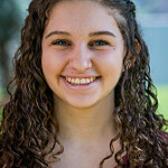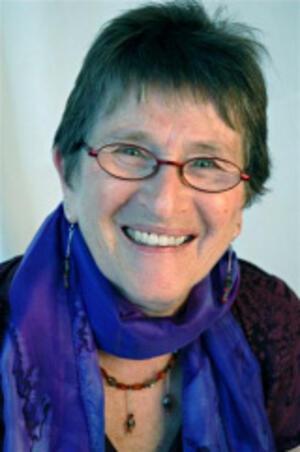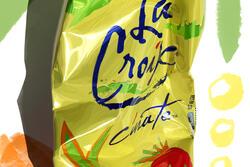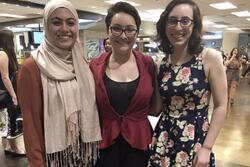Evelyn Torton Beck: An Intersectional Role Model
Evelyn Torton Beck was born in Vienna, Austria in 1933, and immigrated to the United States at age seven after the Nazi party came to power in Europe. By the age of 40, Beck was teaching Comparative Literature, German, and Women’s Studies at the University of Wisconsin, where she was known as a loud and proud Jewish woman and lesbian. It was at that point when Beck’s intersectional identity began to shine.
Kimberlé Crenshaw, the woman credited with coining the term intersectionality, once wrote that “because the intersectional experience is greater than the sum of racism and sexism, any analysis that does not take intersectionality into account cannot sufficiently address the particular manner in which Black women are subordinated.” Similarly, Beck’s work demonstrated her understanding that the intersectional experience of a Jewish lesbian was greater than just the combination of any sexism, homophobia, or anti-Semitism she might experience. These pillars of prejudice and hatred could not function independently of one another.
In 1982, Beck published “Nice Jewish Girls: A Lesbian Anthology,” a collection of poems, stories, and essays on the Jewish lesbian experience. The book discussed the struggles that Jewish lesbians faced in combating anti-Semitism even within the lesbian feminist community. Beck’s acknowledgment that Jewish lesbians had a unique struggle for acceptance and belonging in the feminist, lesbian, and Jewish communities was a radical move. She fought for more recognition and validation by feminist activists and lesbian activists, who she felt did not take her work seriously. Personally, as a Jewish woman, it can sometimes feel as though my intersectional identity is being ignored by both my Jewish community and my nationwide community of feminists. In my own life, I strive to emulate Beck’s refusal to relent when she felt the same way.
In 1984, Beck began teaching at the University of Maryland, where she created and subsequently ran their Institute for Gender Studies. Being from Maryland myself, this bullet point in Beck’s biography makes me feel even more connected to this trailblazing woman. Beck’s work in establishing an institution that would provide educational opportunities for future students to carry on her legacy is nothing short of awe-inspiring. Beck worked hard to make the University of Maryland, College Park community more inclusive of Jews, women, and members of the LGBT community—students and faculty alike. There are truly few things more important than education, especially in relatively new fields such as Gender Studies which are often written off as unimportant in the academic world; their importance, unfortunately, need to be constantly validated, even today.
It is not only Beck’s work championing Jewish feminism and lesbianism within the academic community, the activist community, and society at large that inspires me, but also her personal history. A child born at the dawn of the Holocaust, Beck lost her maternal grandmother along with countless childhood friends and residents of her hometown in ghettos and concentration camps. Yet, despite these unspeakable horrors, Beck wore her Jewish and lesbian identities with pride, perhaps because of the fact that Jews and lesbians were both persecuted by the Nazi regime.
As a Jewish feminist myself, Beck’s pride will serve as a constant reminder for me whenever I’m in a situation when I’m not feeling brave enough to embrace my own identity. The next time I am not counted in a minyan because of my gender, or a peer makes an uncomfortable joke about Jewish women, or a stranger strikes up a conversation about anti-Semitism in the Women’s March movement, Beck will be in the front of my mind. I aspire to have her confidence and drive to share my own intersectional identity with the world.
This piece was written as part of JWA’s Rising Voices Fellowship.








Very well written!